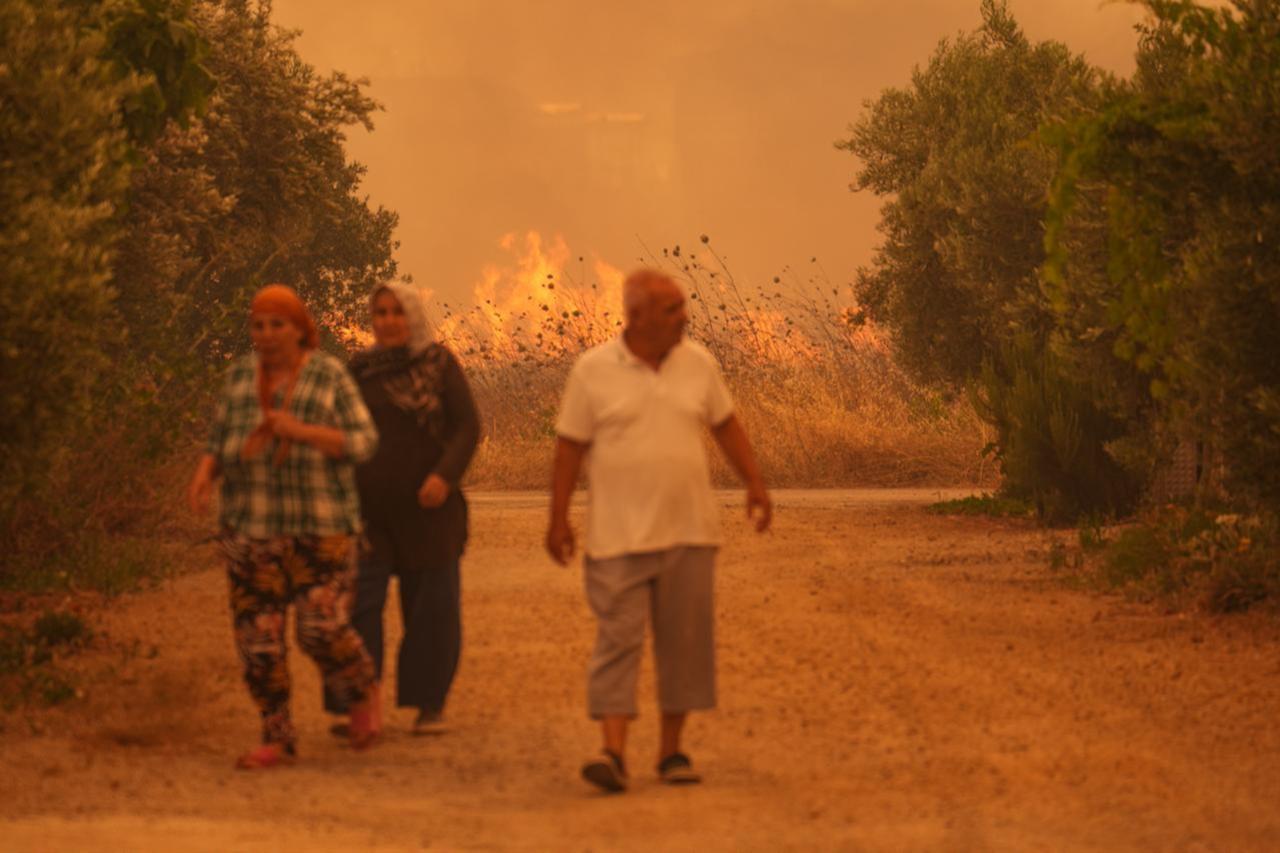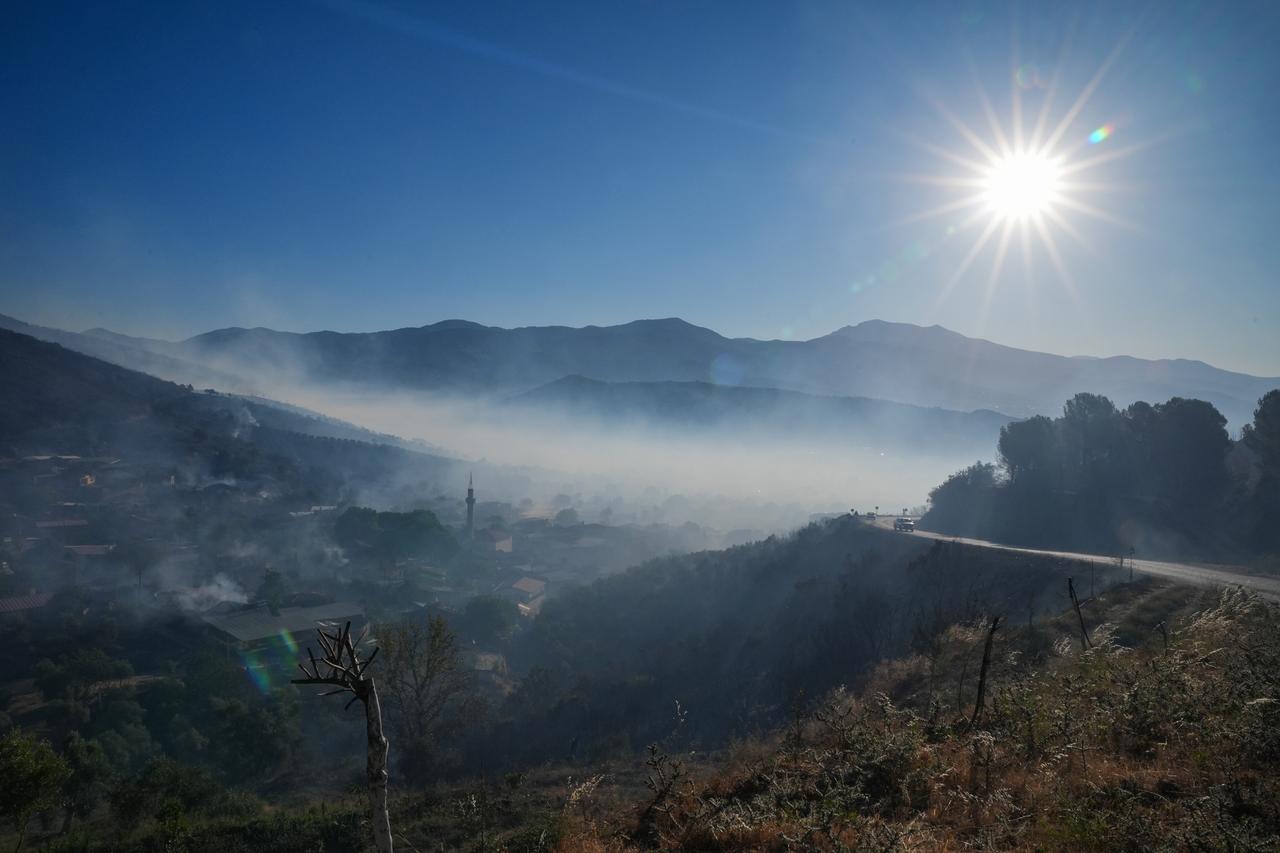
Türkiye is in the middle of multiple environmental crises. Firstly, wildfires are aggressively escalating in Izmir and neighboring districts. There are so many life-threatening wildfires near city centers that can be witnessed from the balconies of elderly locals.
Volunteers and local residents are helping out by providing water and necessities to the fire brigades and forming firebreaks from any material they could find to prevent the fire from approaching inhabited areas.
The families that had to leave went to temporary shelters set up in schools and other government buildings nearby. Such tragedies usually result in harsh opposition criticism toward the government, but critics offer no concrete solution to solve the crisis, except for suggesting buying more fire planes. The government usually accepts the shortcomings.
People in the Aegean region believe in one widespread conspiracy theory that argues that the PKK terrorist group intentionally started forest fires.
They repost alleged past statements of PKK leaders online, including ringleader Abdullah Ocalan, urging PKK members to struggle against Türkiye on every front, saying, “If you don’t have a weapon, you can break things in state buildings, or you can start forest fires.”
Considering the peace initiative with the PKK in 2025, secular Aegean locals are increasingly voicing their fears of the peace process more openly, as they think it will lead to wide compromises that will change Türkiye’s political landscape and constitution for good.
You can see how wildfires can lead to many conspiracy theories in line with the current political atmosphere. If you follow Turkish politics for a long time, you are definitely not surprised.

Secondly, there is a controversial draft law that would open olive tree farms to mining zones. As per the draft law, companies will be able to relocate large chunks of olive trees if they get permission to open a lucrative mining operation.
While discussing the draft law on olive farms, senior AK Party lawmaker Abdullah Guler suddenly screamed at journalists and said, “Have you thanked the AK Party once? Türkiye had 87 million olive trees before the AK Party. Because of us, Türkiye now has 210 million olive trees.” Guler is right; Türkiye has been breaking records in olive production in the last two decades.
However, many AK Party leaders have been voicing such remarks lately as they see fewer people loudly appreciating the party’s good deeds.
You definitely remember the fierce exchange of words between Ukrainian President Volodymyr Zelenskyy and Trump in February, where Vice President of the United States JD Vance intervened and said, “Have you said thank you once?” a remark that fueled the fire in the already heated debate.
Guler's rant reminded me once again that the AK Party still suffers from not being heard, despite the government’s strong media power on paper.
Except for Erdogan’s strong remarks, no other AK Party lawmaker is sincerely successful in conveying the government’s message on different issues, such as the party’s agriculture policies.

Imamoglu’s arrest over corruption charges and legal pressures on the main opposition party also contributed to this theory. AK Party was not able to convince the public with their argument that the mayor’s arrest was a legal case, not a political one.
Erdogan, for the first time, acknowledged the effects of Imamoglu’s arrest on the Turkish economy by saying, “Despite every shock that Türkiye went through in the last three months, our economic program is still intact.”
Thirdly, Türkiye’s Parliament officially passed its first national climate law, laying the foundation for a legally binding framework to reduce greenhouse gas emissions and adapt to climate impacts.
This law establishes a national emissions trading system (ETS), clarifies institutional roles, and is a step forward in the state’s net-zero objective to achieve net-zero by 2053.
One stream of opposition has come from Türkiye’s nationalist and conservative circles, who view the law as externally imposed and reflective of Western or “globalist” influence. Figures associated with Eurasianist and anti-Western positions have been particularly vocal.
Secular nationalist journalist Banu Avar, a prominent Eurasianist critic of both the West and the ruling government, claimed in a widely circulated video that the law would require citizens to seek permission for private gardening and impose methane quotas on livestock.
Her rhetoric reflects a growing narrative that environmental regulations are a vehicle for foreign control over national resources and rural livelihoods.
Mustafa Kaya, deputy chair of the Saadet Party and member of parliament for Istanbul, referenced former U.S. President Donald Trump during a parliamentary debate, warning that the bill would place an unnecessary burden and even damage on Turkish industry.
All in all, wildfires in the Aegean region, new mining regulations, and newly enacted climate law reveal how Turkish politics leak into every aspect of the topic in a polarized country.